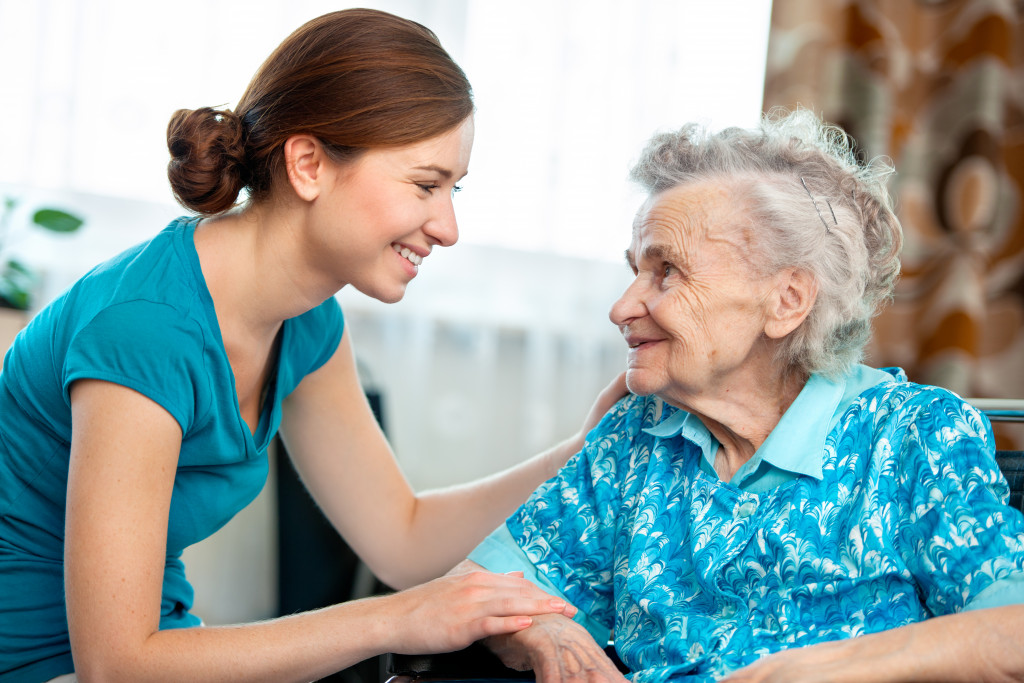Caring for elderly parents can be a daunting task. As your parents age, they may require more care than you can provide on your own. However, with the right strategies and resources, you can ensure that your elderly parents get the care they need in their latter years. Here are some tips for doing that.
Develop a Care Plan
The first step in caring for elderly parents is to develop an appropriate care plan. Consider your parent’s needs and what kind of help they require. You may want to consult a doctor or social worker to determine what type of long-term care plans are needed and how best to implement them.
Make sure you keep up with regular check-ups and doctor’s appointments to catch any health issues early on. For example, if your elderly parent is experiencing memory loss, make sure they get regular cognitive assessments to monitor their condition.
Similarly, keep track of any changes in your elderly parent’s physical and mental health. This includes whether they are having difficulty with balance or coordination and how they feel emotionally.
Utilize Residential Care Services
Residential care services can provide extra support to elderly parents who need assistance with everyday activities like bathing, dressing, cleaning, preparing meals, managing medications, or providing companionship.
There are supportive residential care homes that can help provide the care and supervision your elderly parent needs. They often serve as adult daycare centers that can offer social activities and companionship during the day when you may not be able to be with them or for extended periods of time.
This is especially helpful for elderly parents who are living alone and may not be able to take care of themselves. It can also be an alternative for working family members who may need to leave their elderly parent alone for long stretches of time.
Seek Out Local Resources
Many local resources are available to those caring for elderly family members, such as Meals on Wheels programs, senior centers and daycare facilities, adult daycare programs, transportation services, and even home modification assistance if necessary.
Researching these types of community resources can help ensure that your loved one receives all the support they need without overburdening family members who have other obligations to attend to.
Moreover, look into government programs and organizations that provide assistance to elderly individuals. These can include Social Security benefits, Medicare, Medicaid, and more.

Take Advantage of Technology
Technology has come a long way in recent years, and there are many tools available that make it easier than ever before to monitor the health and safety of your elderly parent, even when you cannot be there in person yourself.
Automated medication dispensers, motion detectors, fall sensors, and activity monitors allow family members to keep an eye on their loved ones even when they’re miles away!
Additionally, computerized monitoring systems allow family members and caregivers to track changes in a patient’s behavior or condition. These systems can provide alerts if there is any sudden change, so that appropriate action can be taken quickly.
Connect With Other Caregivers
It is important for caregivers not only to connect with other people who understand their situation but also with organizations that provide support specifically geared towards those taking care of aging parents or relatives in their later years, such as local chapters of The Alzheimer’s Association or AARP Caregiver Alliance.
These types of organizations offer educational information about legal rights and benefits available for family caregivers and emotional support from others going through similar circumstances. For example, support groups, workshops, or classes in your area could provide helpful advice and guidance.
By connecting with other caregivers and taking advantage of the local resources available to you, you can ensure that your elderly parent is receiving all the care they need in their later years. You can also feel more confident in your role as a caregiver, knowing that you’re doing everything possible to make sure your loved one is safe and taken care of.
Caring for elderly parents can be a challenging yet rewarding experience if done correctly — it requires knowledge about available resources both within the community and online; good communication between all parties involved; understanding legalities such as power of attorney; and proper planning ahead so that everyone involved knows exactly what needs to be done when it comes time for decision making regarding healthcare options or end-of-life decisions should they arise unexpectedly at some point down the road. By following these five tips, families will be able to take better control over the situation while giving their beloved elderly family members all the love, understanding, and attention they deserve during this special period in life!

